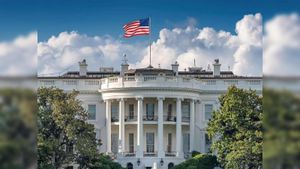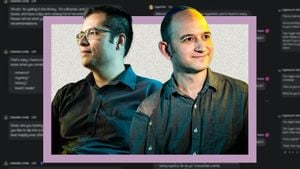Latin America has always been at the heart of political and social dramas, and recent events are no exception. Problems span from Bolivia's streets to the next U.S. presidential election, echoing deep-rooted issues from the past. The political environment is heating up as leaders from the region grapple with protests, political advances, and the growing support for far-right ideologies among certain communities, particularly Latino voters.
One glaring situation unfolded recently when armed groups took control of a military facility near Cochabamba, Bolivia. This incident occurred amid rising tensions between supporters of former President Evo Morales and opposing factions led by current President Luis Arce. The armed group, which authorities described as acting treasonously, reportedly kidnapped soldiers and seized military arms and ammunition. This takeover happened just as the Bolivian army was working to clear blockades set up by Morales' supporters, who were protesting against investigations involving Morales on serious allegations—claims he stridently denies.
Visuals of the chaos emerged as local news broadcasts displayed soldiers bound and held captive. These blockades had persisted across Bolivia for weeks, with demands to halt investigations surrounding the former president, which include allegations of statutory rape and human trafficking. Morales, who was president from 2006 until his resignation following protests spurred by election fraud claims, remains pivotal as he prepares for the upcoming 2025 presidential election.
Meanwhile, tensions have also erupted on social media and at political rallies over the past months. Morales shared footage purportedly showing his vehicle being attacked, labeling it as part of what he deems assaults against him. The government has outright rejected these assertions, emphasizing they had no intention to harm him.
The Ecuadorian political scene isn't without its conflicts either. Amid various protests demanding social and economic reforms, President Daniel Noboa recently outlined measures intended to instill peace and stability. His proposals engage the government more directly with the complaints of citizens, warning against the ideologies of leftist groups working to destabilize his administration. Noboa aims to appeal particularly to indigenous communities, recognizing the historical grievances and inequities they face. This approach aligns with the continuing struggle for indigenous rights across Latin America, where governments have long been accused of neglecting these populations.
Transitioning to the U.S., the political ties of Latin Americans are increasingly complex. Journalist Paola Ramos highlights how Latino voters have shifted significantly toward supporting Donald Trump, marking an unexpected trend. Traditionally, the Latino demographic leaned Democratic, but recent polling suggests nearly 44% of Latino men support Trump as he gears up for his 2024 re-election campaign.
Ramos, who penned the book "Defectors: The Rise of the Latino Far Right and What it Means for America," cites internalized racism, traditionalism, and political trauma as key factors driving this shift. Latinos are engaging with notions of identity and belonging, sometimes at odds with their cultural roots, as they navigate the treacherous waters of American politics.
Comments made at recent rallies, particularly derogatory remarks by comedian Tony Hinchcliffe aimed at Latinos, faced backlash, yet the support for Trump remains resolute among certain factions of this community. Ramos noted, "If you were already supporting Trump, I don’t think this is a comment to make you reconsider." It's as though these remarks failed to pierce through the political loyalty deeply entrenched among some voters.
Yet, what’s even more intriguing is how this relationship with conservative politics influences racial identities. Some Latino supporters distance themselves from immigrant narratives, privileging their perceived whiteness. For example, some Mexican Americans embrace identities aligning with traditionally white nationalist sentiments—an unsettling development considering the historical treatment of Latino communities.
The reaction to the Trump campaign raises broader questions about the politicization of identity. Underlying trauma from political turmoil back home reflects choices made here, impacting the community’s political stances. A poignant case is Gabriel Garcia, a Cuban American and Proud Boy member who participated in the January 6 insurrection. His pro-Trump sentiment stems from his family’s harrowing escape from communism, as seen through the lens of fear and conservativism.
The enormity of these political and social transformations reverberates across borders. While countries like Bolivia strive for stability, the U.S. witnesses distinct ideological shifts among Latino voters. The question looms: will the far-right appeals to this community reshape the narrative across the Americas, spilling beyond U.S. shores and compelling new dialogues about ethnicity, belonging, and politics? Institutions across Latin America and the U.S. continue to shape the future, but the novel alliances forged today could redefine relationships long established.
Overall, the intertwined fates of Bolivia and the U.S. Latino community exemplify how far beyond mere politics; these events connect to identity, lineage, and the pain of historical scars. Whether this will yield constructive engagement or point to divisions remains to be seen as both regions stand at the brink of nuanced reflections and challenges at every turn.



